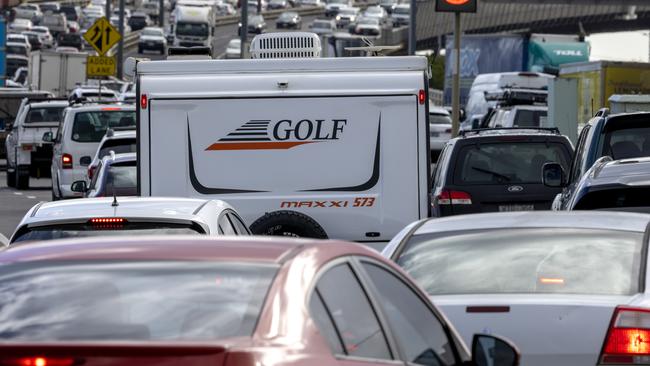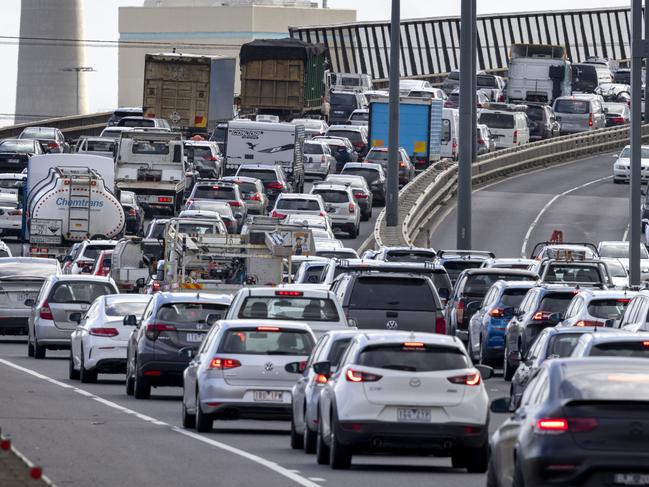AI to slash Melbourne traffic congestion
Artificial intelligence is predicting Melbourne traffic jams hours in advance and could now help thwart road blockages before they happen.

Future Victoria
Don't miss out on the headlines from Future Victoria. Followed categories will be added to My News.
Artificial intelligence developed by Melbourne researchers is predicting traffic jams up to three hours in advance and could slash congestion by up to 20 per cent.
The new self-learning system, trialled across the city for five years in a world first, has improved its accuracy to an unprecedented 98 per cent and could now help authorities remove road blockages before they appear.
It uses thousands of points of real time data – including from motorists’ GPS, roads agencies, and even weather forecasts – to predict how traffic will flow in the future.
The core AI “engine” was developed by PeakHour Urban Technologies in collaboration with engineers at the University of Melbourne’s Australian Integrated Multimodal EcoSystem, with support from the Department of Transport and Telstra.
Director of AIMES, Professor Majid Sarvi, said the team couldn’t have dreamt for better results when they began testing in the field.
“This system is self-learning and its predictions are beautifully accurate,” he said.
Professor Sarvi said the new application “learns and adapts as it goes”, which marks a key difference to commercialised mapping apps.

“Google Maps uses historical data, not live data, to say it could take 20 to 40 minutes to go from A to B. That window is going to get wider in peak hour because it’s going to get harder to predict,” he said.
“There’s such a build-up with traffic congestion, by the time you’re on the road the travel time is wrong.”
Over 2000 data sensors across 100km of inner-Melbourne streets were used to test the predictive accuracy of the system in its infancy, with millions of crosschecks.
It now continues to improve itself and had improved accuracy from 92 per cent to 98 per cent.
Chief executive of PeakHour Urban Technologies, Omid Ejtemai, recently told a University of Melbourne forum that data was constantly fed into the system and results were obtained in “less than 30 seconds”.
“Melbourne is the world’s first city where this has been done,” he said.
Professor Sarvi said the next step was to move the system to a multi-modal network, and that signal management – changing traffic lights to improve flows – won’t slash congestion without predictive technology.
“Melbourne has worse congestion than Los Angeles at the moment, and they have 18 million people. It’s totally embarrassing,” he said.
“Artificial intelligence is the future. Look at the stock market, medical science or even your own phone. For some reason transport is very far behind.”
Professor Sarvi said other countries were in discussions to develop the tool for public use, with traffic patterns in other cities able to be learnt within five days.
“I think our government should start using this yesterday, I don’t know why they are not,” he said.
“It’s ready to go, it’s not a lab model.”





